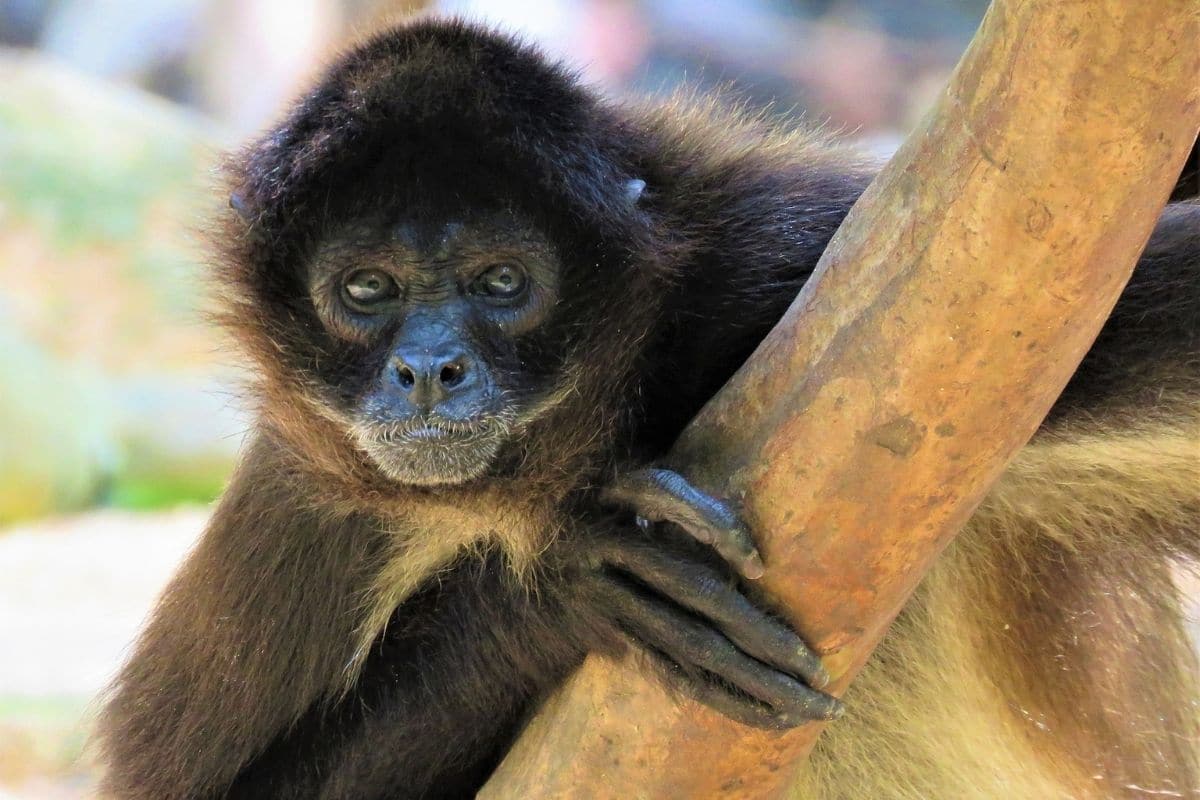
They like to feast on fermented fruit with a hint of ethanol. And that may be where our love for alcohol comes from.
Many people like to enjoy a refreshing beer or glass of wine every now and then. But where does our love for alcohol actually come from? The basis for this may have been laid millions of years ago, biologist Robert Dudley claimed some eight years ago. And now, indeed, researchers seem to have found tentative evidence to support this so-called “drunken monkey” hypothesis.
Drunken Monkey Hypothesis
In 2014, Dudley wrote a book outlining his theory. Our fondness for alcohol may have started millions of years ago, when our distant ape-like ancestors discovered that the smell of alcohol led them to ripe, fermenting, and nourishing fruit. Measurements showed that some fruits known to be eaten by primates have a naturally high alcohol content, up to 7 percent. Dudley called his theory the drunken monkey hypothesis. But at the time, he had no data showing that monkeys and apes did indeed prefer fermented fruit, or that they digested the alcohol in the fruit.
Study
In a new study researchers decided to test the drunken monkey hypothesis. They collected discarded fruit remains from wild black-handed spider monkeys (Ateles geoffroyi) who live on Barro Colorado Island in Panama and also analyzed their urine. The researchers discovered that the alcohol concentration in the fruits was actually always between one and two percent – caused by the fermentation of sugar into alcohol by yeast. Moreover, the ripe fruit the monkeys collected came from the yellow mombin plum; a fruit that has also been used for millennia by indigenous human populations in Central and South America to make chicha; a fermented alcoholic drink.
Urine
In addition, the urine of the black-handed spider monkeys was found to contain so-called secondary metabolites of alcohol. This means that the monkeys are actually using the alcohol for energy – it doesn’t just go in at the top and come out at the bottom. “The monkeys probably eat the ethanol-containing fruit for the calories,” said researcher Christina Campbell. “They get more calories from fermented fruit than from unfermented fruit. The higher calorie intake then means more energy.”
careful evidence
It means the researchers have tentatively found evidence for the drunken monkey hypothesis. “For the first time, we have been able to demonstrate beyond any doubt that wild primates eat ethanolic fruits without human intervention,” Campbell said. “So it seems there is some truth to the drunken monkey hypothesis: our predilection for alcohol may well stem from the weakness of fruit-eating primates for naturally occurring ethanol in ripe fruit.” And as with the monkeys, our human ancestors may have also favored ethanol-containing fruits, as they contain more calories.
intoxicating
Do the monkeys really get drunk? That is doubtful. “They probably won’t get drunk,” Dudley suspects. “But it does offer some physiological benefit. You can’t rule that out.” In addition, the psychoactive effects of ethanol can result in the monkeys eating more and taking in even more calories.
Today, the availability of alcohol in liquid form, without the filling pulp of fermented fruit, means that too much is easily taken. The idea that humans’ natural affinity for alcohol is inherited from our ape-like ancestors could help society better cope with the ill effects of alcohol abuse, the researchers say.
Source material:
†Monkeys often eat fruit containing alcohol, shedding light on our taste for booze” – UC Berkeley
Image at the top of this article: Akiroq Brost via Pixabay